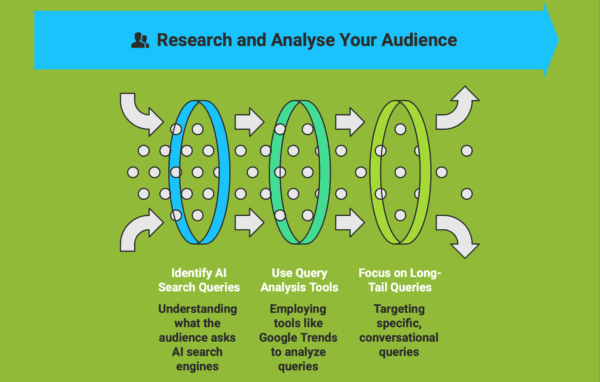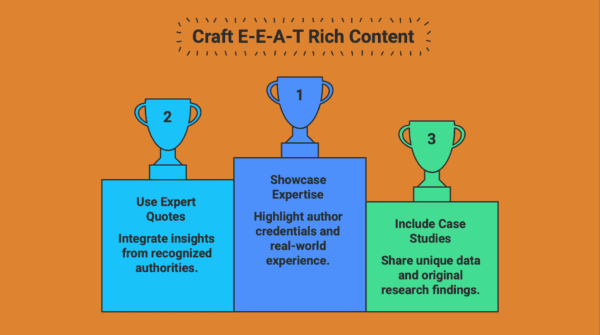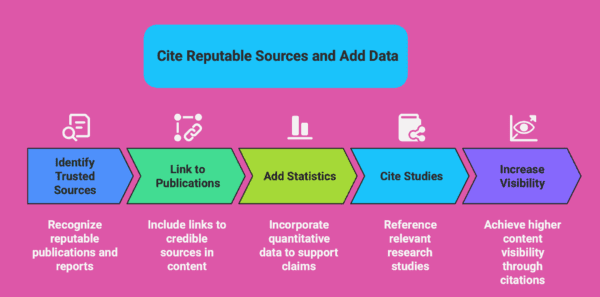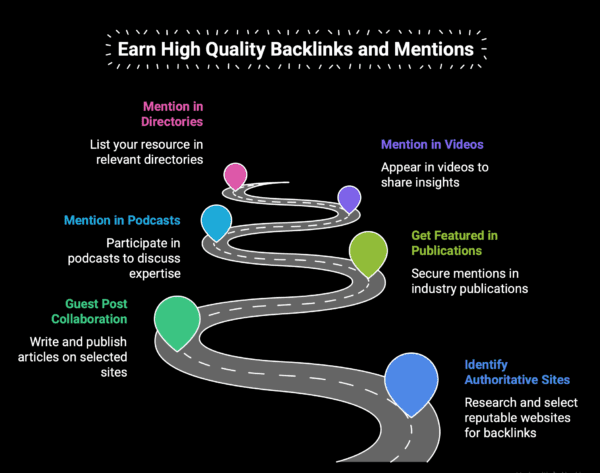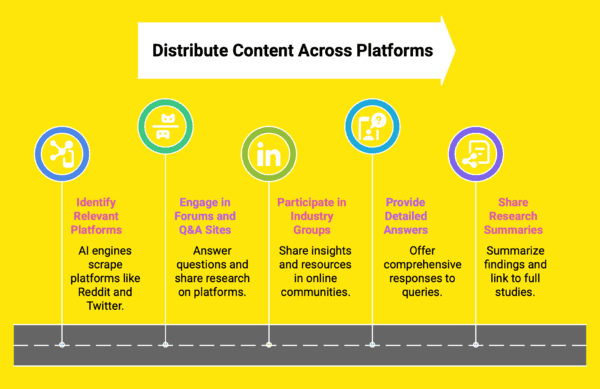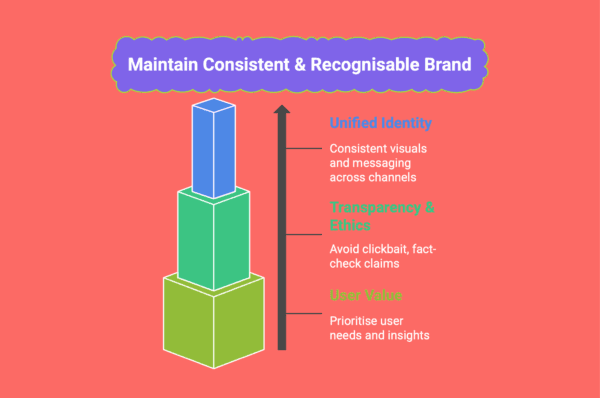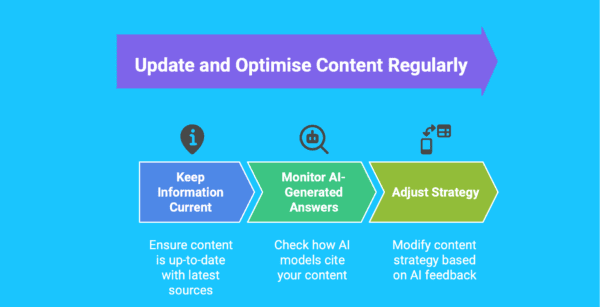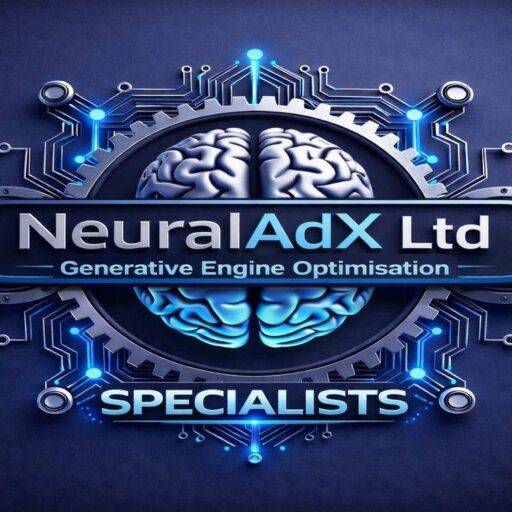A Step-By-Step Guide on How To Build Authority For Generative Engine Optimisation
Article Written By Paul Rowe with ChatGPT insights, Founder of NeuralAdX Ltd and Chief Generative Engine Optimisation Officer. Publish Date: 06/07/2025
In an era where AI tools like ChatGPT, Claude, and Google AI Overviews increasingly shape what information is surfaced online, building content authority is no longer optional—it’s essential. This step-by-step guide offers a clear, strategic approach to earning recognition and citations from generative engines by aligning with how AI systems evaluate trustworthiness and relevance.
The process begins with researching your audience’s AI-driven queries using tools like Google Trends and Answer the Public. Next, it emphasizes crafting E-E-A-T rich content by showcasing expertise, credentials, case studies, and original insights. Citing trusted sources and data adds credibility, helping AI models prioritize your work.
You’ll also learn how to earn high-quality backlinks, amplify reach through content distribution on platforms like Reddit and LinkedIn, and maintain consistent, ethical branding across all channels. Finally, the guide stresses the importance of keeping your content updated and monitoring how AI tools reference it—ensuring your generative engine optimisation strategy evolves with the tech.
Whether you’re a business leader or content creator, this guide empowers you to succeed in the GEO landscape by becoming a trusted, high-value voice that AI systems—and people—want to amplify.
How To Build Authority for Generative Engine Optimisation Video
In this video we explain how you build authority for generative engine optimisation.
Full Video Transcript
Hello and welcome back. It’s Paul from NeuralAdX Ltd here. I’m just going to explain to you how to demonstrate authority for generative engine optimisation purposes. Now I’m going to take you on screen to my website where one of my pages explains it and I’m just going to run through the key areas for you. So the first section to consider is crafting the well-known E-E-A-T. Which is rich content of experience, expertise, authoritativeness, and trustworthiness. Okay- So, in regards to this, what you need to do is showcase your expertise. So, encompass that. First in that is adding the details of the author writing the content and in addition to that, the credentials that they have, obviously pointing towards sorts of education or industry experience. And also, also real world experience where possible You also need to implement expert quotations. So, you want to integrate insights from recommended authorities.So, these are that helps bolster your authority because you’re linking to trusted and verified members of government. So it elevates your integrity shall we say, in the eyes of AI platforms. Okay. Another exceptional way of bringing up your E-E-A-T in this instance is to implement case studies. Whereas if you see on my website www.neuraladx.com in my services section, case studies showing two examples of clients that I’ve worked with where their Google Search Console, charts have increased over time due to generative engine optimisation, and that’s something that helps value. To validate that you can do what you say you do, rather than just in writing, you’re showing real world, honest and truthful information backing up what you are saying. So that’s another key factor of E-E-A-T. Okay now the next section I’m going to encompass in authority is to make sure that you cite reputable sources and add data. So this has kind of been covered in the three othervideos that I’ve done, previous to this which is citation edition and this fundamentally points to using resources like government agencies, industry experts or academic institutions because these are the gold standards as per the program in AI engines. So that’s really where you want to be deriving your supporting evidence for information you’re providing on your website so It’s verifiable and unquestionably accurate. So then that way AI has that association that your contentis 100% legitimate and trustworthy erg0 your authority increments in alignment with that. So it’s not difficult in the sense if you’re just. . . In the pursuit of truth and accuracy, you will never go wrong.Okay, So that’s citing reputable sources and adding data.
you also, for authority, want to earn high quality backlinks and mentions now, this is considerably more difficult. Because even with myself, I’ve done a lot of great content and very good at what I do, dare I say And I’ve tried to, connect with HARO, which is help a reporter out and these sorts of places. But it’s very, very hard to be able to connect with people to get yourself given those backlinks, unless you’re willing to pay for it, which- Funny enough, when I do get in contact with these places, they certainly are willing to do so for a large sum of money.Which I think is unethical. But more to the point, I just don’t want to have to pay for that because I see it as a little bit of extortion and capitalism.But this is the way the world is unfortunately. But hopefully over time, if you are able to collate backlinks through genuine scenario.So Then that will greatly help your authority. So that’s another element that you need to look into for Generative engine optimisation authority building. The next way of building up the authority is to distribute content across multiple platforms and by that, I literally mean all platforms with integrity, the more high integrity, the better as it reflects on you so for example I would say, LinkedIn. It is a fantastic one. but then you’ve obviously got the well-known, established, Twitter, Facebook, YouTube, TikTok, which I’m not too much of a fan of, that these very well established and trusted organisations because they’re so huge and regulated. So if you’re getting your content on there, then the AI engines can see how people are interacting with you and what the feedback is and the more of that there is, the more it helps them derive an assessment of your organisation, and its level of authority. Then it can make its decision. The less platform content you have, the less secure AI is about your company because it doesn’t have the intelligence and obviously AI is all about collating data. In order to provide an accurate answer. So, yeah. Dealing with as many Platforms as possible in regards to your business is paramount. Now onto the next factor of- authority is maintaining consistent and recognisable branding. So that’s kind of self- explanatory. But- I found myself that a key factor that they look at is the acronym NAP It’s not a initialism. It’s an acronym NAP, which is name, address, and phone number. You need to make sure that those three core details are on every single platform that you’re featured on is accurate as any discrepancy with this, A.I penalises you for that so you need to be very very focused to make sure that is precise. So that’s a mentionable ingredient there for the authority. Also, another key provider of authority is updating an optimising your content regularly. I mean, a little while ago, I was doing some research and I found that HubSpot found that when they did an update, just minor tweaks of their blog posts from a year ago. Once that was done within a 30-day period they had a 50% viewing increase in those particular blog posts that were updated comparatively to the previous month, beforehand, Jesus Christ, if I can actually speak. So it does show you how much current content is rated as an authoritative element because obviously it illustrates that the person is taking control and being on. On top of their game, and that again gives you another attribution of authority in the eyes of generative engines. So that’s quite a considerable few elements that make up the authority factor. I will also add hoc, an additional one that comes to my mind that is helpful and that is to accumulate your association with business directories. So, there are many out there but there’s ones that have higher authority. Like, there’s free index and, Oh, is it- A hot frog. I’m not sure if that’s exactly the name, but it’s close to it. But there’s some of them that are really quite sought after and quite hard to get on their platform, they really do scrutinise you. trust pilot as well surprisingly, is quite a good one that I have done that’s really quite thorough and honest with their testing. So, if you can get associated with them, that will further boost your authority, because AI recognises the fact that they do do their due diligence, so therefore for them to be in a association with you, that then pushes you up the hierarchy. So, that’s another ingredient that helps with the authority. So, yeah, that’s just a quick overview of some of the elements that aid in building up so if you have any further questions, Please do message me and, it’ll be my pleasure to reply to you to the best of my knowledge. Okay. Alright. Ladies, gentlemen, God bless and be well.
Research and Analyse Your Audience
1. Understand what your audience asks AI search engines: (like chatGPT, Perplexity, Claude, Google AI Overviews etc).
2. Use tools like Google Trends and Answer the public to identify conversational, long-tail queries.
Example: Instead of targeting "AI search optimisation," focus on "How do I optimise my website for chatGPT?"
Craft E-E-A-T Rich Content (Experience, Expertise, Authoritativeness, Trustworthiness)
1. Showcase expertise: Add detailed author Bios, credentials and real world experience.
Example: "Written by Jane Doe, PhD in AI, with 10+ years in search technology."
2. Use expert quotes: Integrate insights from recognised authorities.
Example: "As Dr. Smith notes, "Generative engines prioritise up-to- date, credible sources.
3. Include case studies and original research: Share unique data, results or experiments.
Example: "Our 2024 GEO experiment increased AI citations by 35%.
Cite Reputable Sources and Add Data
1. Link to trusted publications, research and industry reports.
Example: "According to a 2025 Moz report, AI search could overtake traditional search by 2030."
2. Add statistics and factual data: Quantitative information boosts credibility.
Example: "A Princeton study found that citing sources and adding quotes increased visibility by up to 40%.
Earn High Quality Backlinks and Mentions
1. Build backlinks from authoritative sites: Guest post, collaborate and get featured in industry publications.
Example: Write a guest article for a respected AI blog and link back to your resource.
2. Get mentioned in podcasts, videos and directories: Broaden your digital footprint.
Example: "Featured expert on the ‘AI Today’ podcast discussing GEO best practices."
Distribute Content Across Platforms
1. Engage in forums, Q&A sites and social media: AI engines scrape platforms like Reddit, Quora and Twitter.
Example: Answer a detailed GEO question on Reddit, referencing your own research or guide.
2. Participate in industry groups and online communities: Share insights and resources, not just links.
Example: Provide a summary of your findings in a Linkedln group post, linking to your full study.
Maintain Consistent and Recognisable Branding
1. Use a unified visual and messaging identity across all channels.
Example: Same logo, colour scheme and tagline on your website, Linkedln, and guest articles.
2. Be transparent and ethical: Avoid clickbait, fact-check all claims and prioritise user value.Share insights and resources, not just links.
Update and Optimise Content Regularly
1.Keep information current: All AI models prioritise up-to-date sources.
Example: Refresh your GEO guide quarterly with the latest studies and trends.
2. Monitor AI-generated answers: Check if and how your content is being cited, then adjust strategy accordingly.
Summary
Building lasting authority in the world of AI-powered search is not a one-time action—it’s an ongoing strategy that directly influences how generative engines recognise and reference your work. By following the steps in this guide, you position yourself as a trusted, credible source that both AI systems and human readers want to engage with.
It starts with knowing your audience’s real AI-driven questions. Researching these queries using tools like Google Trends and Answer the Public ensures that your content matches the way people interact with AI platforms. Once you have those insights, crafting E-E-A-T rich material—demonstrating expertise, real-world experience, and transparency—becomes the foundation of your generative engine optimisation success.
Citing reputable publications, government data, and industry reports adds weight to your content. Incorporating original research, statistics, and expert quotes helps AI models prioritise your work over generic or unverified sources. Securing high-quality backlinks from respected sites, podcasts, and online directories expands your digital reach and strengthens your authority signals.
Distribution is just as critical—actively participating in forums, Q&A platforms, and professional networks increases the chances of your expertise being noticed, cited, and reused by generative engines. Consistency in branding, messaging, and ethical communication builds long-term recognition and trust.
Finally, regular updates are essential. Keeping your information fresh, monitoring AI-generated responses, and adapting your strategy ensures ongoing visibility. Authority is built over time, but by staying consistent and proactive, you maintain your position as a reliable source in the fast-changing AI search ecosystem.
In short, this process not only improves your traditional SEO but also aligns your work with the way AI selects content—making it an essential roadmap for anyone aiming to thrive in the next era of search.
